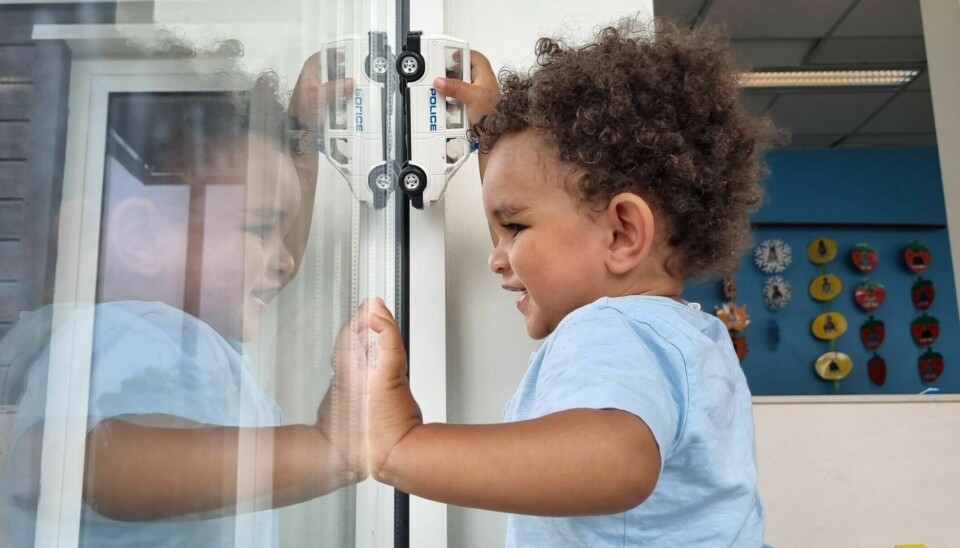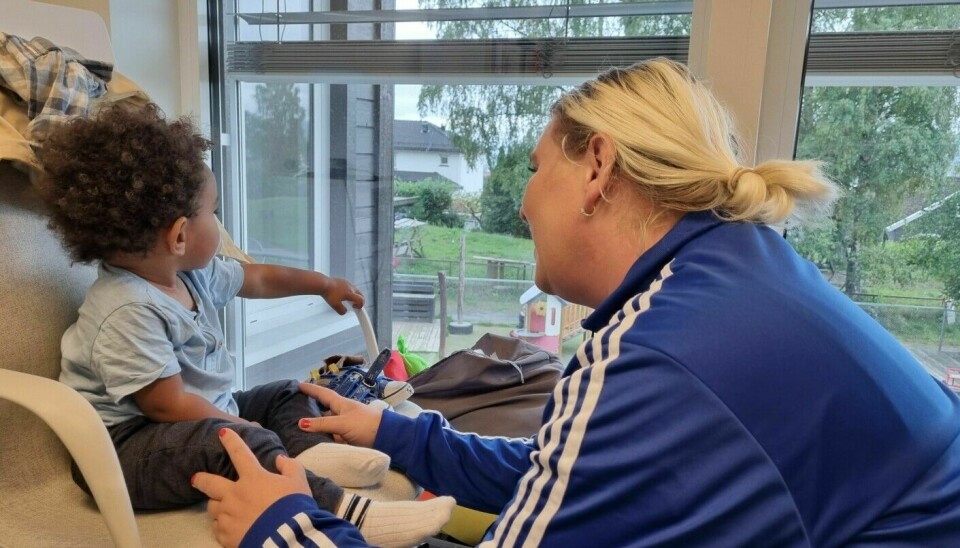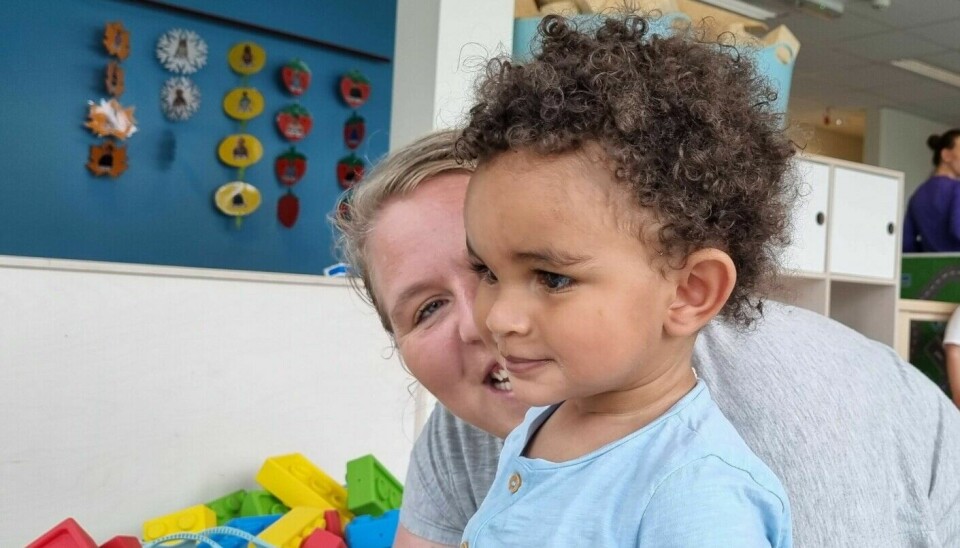
The third week in kindergarten is the most stressful, saliva from one-year-olds reveals
Although the childcare staff thought their new children were beginning to settle in, cortisol measurements showed that the children were still stressed.
Tone Sæter has to wake up her son, William, when they arrive at the childcare Wednesday morning. He fell asleep on the way there.
But the one-year-old quickly perks up and drives off with a toy police car.
“He likes everything with wheels. Trains, cars, anything that can be driven is fun,” his mother, Tone, says to sciencenorway.no.
William has finished his first week and is starting his second week at Grefsenlyst Fus kindergarten in Oslo. Sæter is surprised at how well it has gone.
“It’s nice as a mother just to be able to go home and think that he is doing well,” she says.

Saliva samples and interviews
Parents' gut feelings about their children are often correct, a new Norwegian study of how children adapt to childcare suggests.
The researchers followed 113 one-year-olds during their first three months in childcare. They measured stress hormones in saliva samples and interviewed both childcare staff and parents.
The combination of interviews and measurements tell an interesting story.
Staff and parents have a different experience of the child
In the first days, when the parents stay at the kindergarten, the children’s cortisol measurements don’t show much of the stress hormone. But in the days that follow, cortisol levels in many of the children rise steadily.
By week three, stress hormones levels are highest, on average.
The research was first described by barnehage.no, a Norwegian online news site.
But the interviews revealed a little paradox.
The childcare staff said that most of the children felt better and better over time, May Britt Drugli said to sciencenorway.no.
Drugli is one of the researchers behind the new study, and is a professor at the Norwegian University of Science and Technology (NTNU) and the Regional Centre for Child and Youth Mental Health and Child Welfare.
At the same time, interviews with the parents painted a slightly different picture.
Clingy at home
"He wants to sit on our lap all afternoon, he seems very tired," one of the fathers in the study said about the third week after his child had started kindergarten.
Many of the parents described their children as tired, grumpy and whiny in the first weeks.
By the third week in childcare, more than half of the children still behaved like this after they came home.
Even if the children are fine in kindergarten, they miss their parents, the researchers wrote in the new study.
“When they get home, they let their reactions out,” Drugli said.
But by week four, the researchers saw a turning point. By then the children's cortisol levels had started to drop.

Not as much one-on-one follow-up
The staff also felt that they had gotten to know the children even better by the fourth week. By this point, they felt they understood the needs of each child better.
Drugli believes there may be several reasons why the third week is the most stressful for children.
One may be that the children don't get as much one-on-one follow-up from the adults as they do in the first two weeks.
In some of the kindergartens that took part in the research project, new children also started in the third week.
Parents should talk about their children's reactions
“The message is that the parents and the staff have to talk a lot to each other,” Drugli said.
Parents should tell the staff if the child has a major reaction at home. The staff should also ask about this, she said.
Tone Sæter has not noticed any big difference in William since he started kindergarten.
“He is more tired in the afternoon, and it’s easier to put him to bed. Otherwise, he's the same happy guy,” she says.
Huge difference between children
Sæter also works in the same kindergarten as her son and has experience from both sides of the table.
She is consequently fully aware that not all children have an easy transition.
“There can be a huge difference between children,” Sæter said.
And it's not just the children who have to make an adjustment.
“It's a bit about how secure the parents feel, too — how confident they are about leaving their child in someone else's hands,” she said.
As a kindergarten employee, Sæter believes it is important to adapt the transition period to each individual family.
Ideally, she would like the parents' employers to have the ability to be flexible about this period. This way children who need a longer adjustment period could have it.

Give more than you have time and energy for
Drugli also encourages parents to give their child lots of cuddles and together time in the first weeks after the child has started in childcare.
“When they are clingy, give them what they need. Give more than you have time and energy for at the start, because it will work out,” she says.
The Finnish researcher Katja Tervahartiala has found that children who were at home were more stressed than those who were in childcare.
In an interview that sciencenorway.no conducted with Tervahartiala, she emphasized, however, that children who are starting in childcare are exposed to an extra amount of stress.
And that previous research in the field has shown that this can last for several weeks.
“It is very normal for children — and the parents — to react to something new,” Tervahartiala, who is a researcher at the University of Turku in Finland, said.
Visited in the spring and five days of transition
The children in the new Norwegian study had visited the childcare regularly in the spring before they were due to start. It was also the practice of the childcare centres to have one parent stay at the centre during the child’s first five days.
This can make the transition easier, Drugli said.
“When you have regular visits, it is easier for the staff to discover which children need more support,” she said.
The study is part of the research project New in Daycare (in Norwegian).
Translated by Nancy Bazilchuk
Reference:
May Britt Drugli et.al.: Do toddlers' levels of cortisol and the perceptions of parents and professional caregivers tell the same story about transition from home to childcare? A mixed method study. Frontiers in Psychology, 2023.
———
Read the Norwegian version of this article at forskning.no
------







































